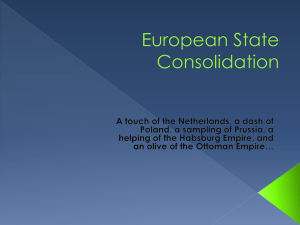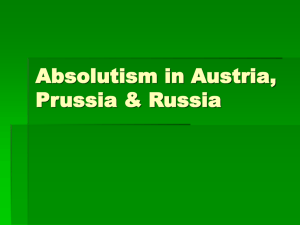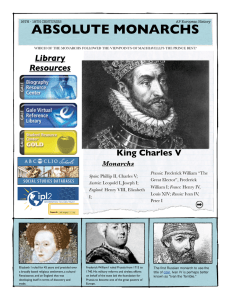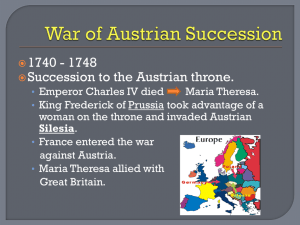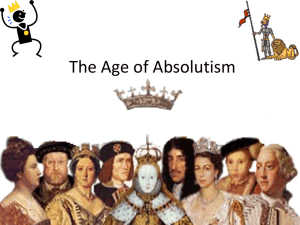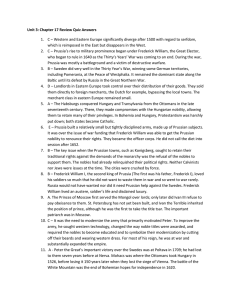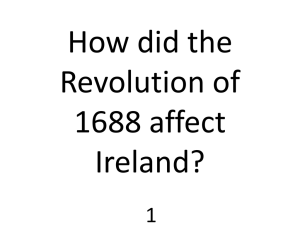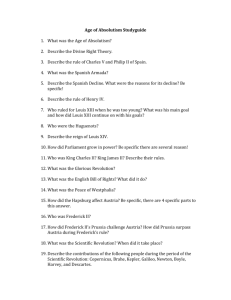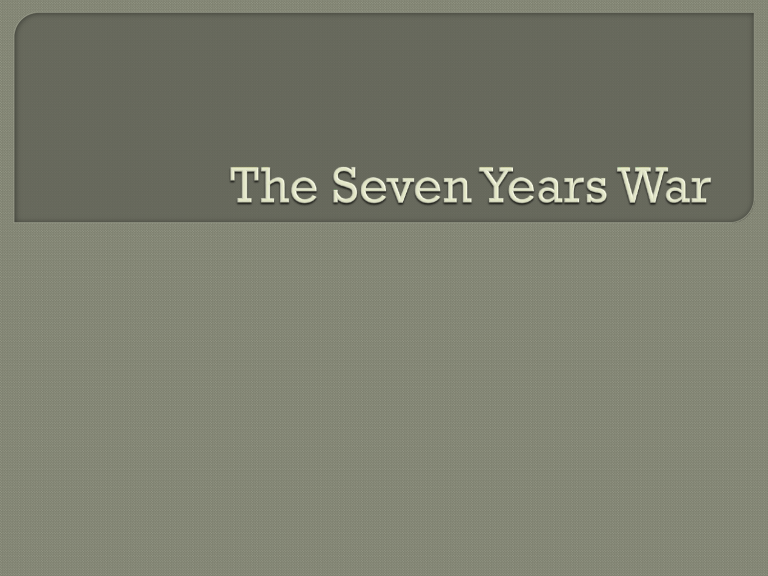
Continental tension between French and English Frederick II “the Great” invaded Saxony and started what would become the “First World War” • suspected conspiracy by Saxony, Austria, and France to destroy Prussian power • Regarded it as continuation of defensive strategy of Convention of Westminster Coalition of states joined against Prussia. France, Russia, Austria, Sweden Smaller Germanic states formed a loose alliance GB supported Prussia with $ Prussia was getting its butt kicked by Russia Frederick the Great was on the verge of suing for peace Death of Empress Elizabeth of Russia Successor Peter III loved Frederick • Raised in Germany • Admired Prussian military • Married a German Peter withdrew from the conflict restoring all that Frederick had lost to Russia • Treaty of Hubertusberg 1763 confirmed Prussia’s rights to Silesia William Pitt “the Elder” employed a brilliant strategy during the conflict Previously opposed British involvement with Continental Europe Once he became secretary of state he gave lots of money to Frederick the Great Regard German conflict as a way to divert French resources and attention away from the colonial struggle Won America on plains of Germany Pitt wanted all of North America east of the Mississippi for GB and he got it • Sent more than 40k English and colonial troops against French in Canada • Cooperation with American colonies Major French losses in America • Unwilling to direct the same European claims to America before and after the war amount of resources against English in America • Military administration corrupt and divided Major islands of French West Indies fell to British fleets Income from sale of captured sugar helped finance British war efforts British slave interests capture most of French slave trade Between 1755-1760 value of French colonial trade fell by more than 80 percent Battle of Plassey: British defeat French in India under Robert Clive • Lead to eventual conquest of Bengal in northeast India • Later all of India George III replaces Pitt with Earl of Bute after policy disagreement Bute negotiates agreement Agreement did not reflect British victory • GB receive all of Canada, Ohio River Valley, and eastern ½ of Miss riv valley • Returned some holdings in India and sugar islands to France Prussia sacrificed greatly to permanently gain Silesia from Austria Turn HRE into empty shell France no longer great colonial power Spanish Empire still intact, but British determined to penetrate its markets India: British East India Company was able to impose its own authority on govt. British govt. face task of organizing its new territories Domestic crises among the European powers • French defeat convince people they need political and administrative reform • Financial burdens What does this tell us about Europe at this time? Causes of the American Revolution? Impact of the American Revolution? George III Numerous ministers, finally settles on Lord North Trying to gain power relative to the HOC Disagreements with the Whigs 5 of George’s 14 ministers 1763 The North Briton issue 45 critiqued George III and the Earl of Bute King had him arrested but he was a member of the HOC. • Convicted of libel and expelled from the HOC. • Fled the country and many citizens participated in demonstrations on his behalf Returns 1768 • Won election to the HOC , Parliament refused to seat him. • He was elected and refused three times The fourth time he won caused the Parliament to invalidate the results of the election. They placed their own candidate “Wilkes and Liberty” became slogan of political radicals and opponents of the monarch Finally he was seated in 1774 when he was elected as the Mayor of London Satirical engraving of Wilkes Founded 1778 by Christopher Wyvil • Mismanagement of American war • High taxes • Lord North’s ministry calls for parliamentary reform Property holders (freeholders) of Yorkshire met in a mass meeting to demand moderate changes in Parliamentary elections Popular attempt to establish an extralegal institution to reform govt Collapsed early 1780’s because supporters were unwilling to appeal for broad popular support
